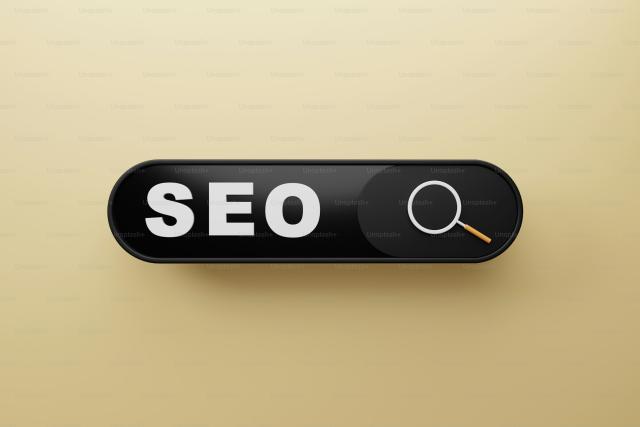
Boost Your SEO with Faster Loading Times for Your Website
Speed Up Your Website for Better SEO
In today’s digital landscape, improving website speed for SEO has never been more critical. Studies reveal that a mere one-second delay can decrease customer satisfaction by 16% and lead to a 7% loss in conversions. Are you ready to elevate your website's performance and outshine your competitors? In this article, we’ll explore actionable strategies to enhance your website’s speed, improve your search engine rankings, and ultimately increase user engagement.
Why Website Speed Matters
Website speed is not just a technical issue; it’s a crucial factor influencing customer behavior and search engine rankings.
- Improved Readability: A faster-loading site improves text readability, allowing users to absorb content without unnecessary delays.
- Increased Engagement: Sites that load quickly keep visitors interested, reducing bounce rates and increasing time spent on pages.
- Quick Information Retrieval: When information is readily available, users are more likely to find what they’re looking for, leading to higher satisfaction rates.
- Increased Retention: A seamless browsing experience encourages users to return, fostering brand loyalty.
1. Measure Your Current Speed
Before making improvements, it’s vital to understand where your website stands. Utilize tools such as SEO Report Master to analyze your website speed and identify areas needing enhancement. Aim for a loading time of under 3 seconds. Simply put, faster is better when it comes to retaining visitors and boosting your SEO efforts.
2. Optimize Images and Media
Images often weigh down websites, leading to slower loading times. To combat this, ensure your media files are optimized:
- Use web-friendly formats like JPEG and PNG.
- Compress images without sacrificing quality. Tools like TinyPNG can reduce file sizes effectively.
- Implement lazy loading techniques so images load only when they enter the viewport.
3. Minimize HTTP Requests
Every file on your website (CSS, JS, images) generates an HTTP request. Reducing the number of requests enhances loading time:
- Combine CSS and JavaScript files where possible.
- Remove unnecessary plugins that add bloat.
- Utilize CSS sprites for icons and small images.
4. Leverage Browser Caching
Implementing browser caching allows visitors to store certain website elements in their browser, resulting in quicker load times on subsequent visits. This can be done by adding the following lines of code to your .htaccess file:
ExpiresActive On
ExpiresDefault "access plus 1 month"
5. Minify CSS, JavaScript, and HTML
Minifying your website’s code involves removing unnecessary whitespace and comments from your CSS and JavaScript files. This makes your files smaller and ensures quicker download times:
- Use online tools like CSSNano or UglifyJS.
- Consider a WordPress plugin like Autoptimize if you're running a CMS.
6. Use a Content Delivery Network (CDN)
A CDN caches your website content across multiple geographically dispersed servers. When users access your site, they are served your content from the nearest server, resulting in faster load times. Here are a few reliable CDN options:
- Cloudflare
- Akamai
- Amazon CloudFront
7. Optimize Your Web Hosting
Your choice of web host significantly affects your site’s performance. Consider switching to a more reliable provider or upgrading your hosting plan if:
- Your site experiences high traffic.
- You operate on shared hosting that limits resources.
- Your site frequently goes down or loads slowly.
8. Regularly Monitor Your Website’s Performance
Improving website speed for SEO is a continuous process. Regularly test your site’s performance using various tools to keep an eye on your loading times and identify new issues. Consistency is key! Maintain a schedule for checking your website speed, perhaps on a monthly basis.
Conclusion
Improving website speed for SEO isn’t just about enhancing user experience; it’s about building a website that ranks well and drives conversions. Embrace these actionable strategies to elevate your website’s performance. Start today and don’t let a slow website drag you down—your future customers are waiting!
By following these expert tips and utilizing tools like SEO Report Master, you can transform your website into a sleek, speedy powerhouse. Remember, the speed of your site can make or break your online success.
Professional SEO reports and tools
Identify technical SEO issues and take action to improve the health and performance of your website. Leverage advanced AI tools for SEO to gain deeper insights, and optimize your online presence more effectively.
Related posts

Boost Your SEO: Eliminate Crawl Errors for Better Rankings
Improve your website's SEO and climb the rankings by fixing crawl errors. Boost your online visibili...
11 months ago

Unlock Success with Strategic Keyword Placement Techniques
Unlock success with strategic keyword placement techniques. Learn how to boost your online visibilit...
11 months ago

Fastest WordPress Themes for Lightning-Quick Websites
Speed up your WordPress site with these ultra-fast themes. Discover the top themes that improve both...
11 months ago
